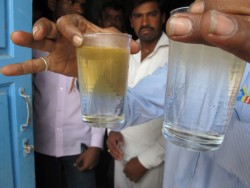Water, energy, and food are the building blocks of life. Access to these resources is necessary for poverty alleviation and sustainable development. There is increasing realisation that these resource systems cannot be looked at in isolation and that they are interrelated. There is an urgent need to look at these systems as part of a nexus. Despite this realisation, there is limited understanding of what the nexus means for rural development and for those based in rural areas. This brief is aimed at policymakers, development agencies, and other stakeholders dealing with energy access and broader issues of rural development in West Africa. It summarises some of the key findings and recommendations of a workshop held by the Smart Villages Initiative in Saly, Senegal in August 2016 with the support of Energy4Impact. The aim of the workshop was to develop a better understanding of the water-energy-food (WEF) nexus in West Africa by bringing together key frontline workers in the region.
Within West Africa, a major portion of the population is based in rural areas, and agriculture is the main source of employment. The many development challenges facing the region require a shift in thinking and policymaking from a siloed approach to one that is more adept at understanding and dealing with the competing interests and needs of, and potential synergies between, the water, energy, and food sectors. This shift also requires local institutions and communities to play a stronger role.
For their part, policymakers, development organisations, and other relevant stakeholders at the global, regional, and national level should take the following measures to develop a greater understanding about the interrelated nature of WEF systems, and to establish the frameworks and approaches necessary to address the challenges.









